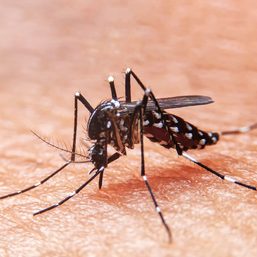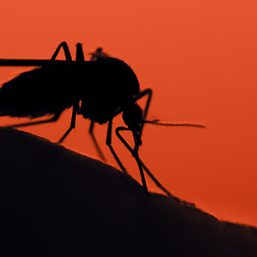SUMMARY
This is AI generated summarization, which may have errors. For context, always refer to the full article.
![[OPINION] Poverty, politicians, and snake-oil peddlers](https://www.rappler.com/tachyon/2023/10/tl-snakeoil-peddlers.jpg)
Corruption under the Executive Branch is nothing new even as it resurges with a vengeance under both the previous and current administrations.
The creativity involved has developed into an art. The pork barrel modus is old hat. One recent innovation is to subcontract procurement processes from line agencies to the Department of Budget and Management. Another might be to tuck expenditures under Confidential Intelligence Funds or belatedly realign approved budgets. A fourth is through institutional bank heists under a faux sovereign fund.
The traditionally corrupt involve high-ticket public works, agriculture supply chains, healthcare funds, and rural health clinics. Nothing has changed except perhaps an emboldened focus on catch-up or remedial infrastructure. Recent non-infrastructure anomalies involve fattening middle-man margins for agricultural products and personal protective equipment. Add also the insidious depletion of pre-need healthcare funding.
Obviously, not all involve high capital expenditures. Many are retail ranging from barangay ghost projects to over-pricing, to pay-offs and payola involving retail penny ante transactions in purchasing and distribution.
Somewhere, as shadowy puppeteers lurking in the catwalks, a politician is invariably pulling the strings.
The criminal DNA is however not limited to the politico. It can also be found among complicit contractors, engineers, educators, lawyers, economists, soldiers, and even doctors – that profession ironically bound by an oath to “do no harm.”
To be a healer is among the noblest callings. That cannot always be said of politicians. Here we focus on a twisted diabolical double helix entangling politics and physicians. In their confluence, notice how the interwoven DNA strands recreate RL Stevenson’s gothic Dr. Jekyll and Mr. Hyde where a physician violates his Hippocratic oath transforming Hippocratic to hypocritical.
It is not difficult to cite examples spanning administrations. Today’s political environment has warped into one that allows the Jekyll-Hyde Janus to go about their business scot-free, shamelessly enriched, living lavishly and free to seek public office. Let us review a handful to reveal a common denominator – that each is founded on widespread poverty and income inequity.
Economists determine inequity through the Gini Coefficient which measures the income of the richest against the poverty of the poorest.
According to the Medicines, Technologies, and Pharmaceutical Services Program of USAID, consumers in the Asia-Pacific region whose economies fail to provide sufficient universal healthcare services (UHC) face high out-of-pocket expenses where healthcare inflation and costs outpace per capita GDP. Since these account for over half of all healthcare expenditures, they impact on Gini inequities as the rich are able to afford health care while the poor are forced to rely on UHC, government programs, local government officials’ medical outreaches, pork barrel projects, or simply the kindness of strangers.
Such reliance is invariably infected at the quantum level with a political DNA. Unfortunately, in social media, the medium of choice to access the poorest, cheap placebos, fake or unregistered medication, experimental drugs, and false treatments are peddled alongside real but expensive medicine and the whole package is legitimized by popular endorsers including quacks, celebrities, and political wannabes.
Note examples where the poor are manipulated, victimized, and twice-over taken advantaged.
Prior to seeking an extended presidential term, one candidate had co-opted a government medical services and pre-need fund to distribute Philippine Health Insurance Corporation cards to a sector of the public in desperate need of health insurance and affordable services.
The abuse of fiduciary trust and the subsequent fund depletion attributed to political appointees plus the ongoing infighting between health officials and the fund’s fiduciary officers remain festering wounds that impact negatively on the poorest who rely on the institution.
Under another presidency, a cabinet official negotiated for the purchase and distribution of an experimental vaccine via a nationwide inoculation program targeting school children sans requisite vetting necessary to determine whether the children were seropositive or negative. Such determination was critical. So was the lack of informed consent. Prior to its approval the experimental vaccine had displayed deadly side-effects in trials. Unfortunately, the rush to inoculate coincided with cash-outs for an on-going political campaign.
Under a third presidency, going by comparative data, a powerful political task force prioritized the procurement and distribution of an anti-COVID 19 vaccine whose efficacy was a low 51%. Post-mortem rationalization ranged from procurement and supply chain bungling, missed opportunities, the lack of planning, and the geopolitical influence of a hegemon the government sought to ingratiate itself under. Needless to say, low efficacy vaccines place the public at greater risks. On a per capita efficacy basis, these are also the most expensive. Combined with pandemic management surrendered to politically appointed unqualified ex-military men wielding Draconian police powers resulted in an economy worst hit relative to others. Again, the poorest pay the highest prices.
Under the same health officials, painfully seared in our collective memory is the P18.8-billion Pharmally medical supplies scandal facilitated by an undercapitalized start-up and a small office at the Executive Branch manned by political appointees and involving political cronies and foreign nationals. Ironically, a construction company was likewise involved.
Note the convergence of the demand for unfulfilled healthcare with the desire for competent political leadership. In the 2022 campaign period, a physician had earned a popular following through Facebook enough to qualify him a sought-after co-runner and contender in the last presidential derby.
Because of the poor state of health care, specifically the prohibitively high costs of medication and treatments, following social media platforms popular with the poor, these, along with celebrities and doctor endorsements have become virtual drugstores peddling cheap albeit dangerous magical potions, cure-alls, and snake oil.
One doctor has filed a complaint against unscrupulous peddlers and websites. That’s a start but it hasn’t torn apart the infernal relationship between dubiously provided healthcare and politics.
The cybercrime statutes need revisiting and the authorities need to act aggressively on other fronts. With the prevalence of political falsehoods on all media platforms targeting the vulnerable, compared to other forms of criminality and corruption, healthcare crimes inflict immediately on the poorest among us. – Rappler.com
Dean de la Paz is a former investment banker and managing director of a New Jersey-based power company operating in the Philippines. He is the chairman of the board of a renewable energy company and is a retired Business Policy, Finance, and Mathematics professor. He collects Godzilla figures and antique tin robots.
1 comment
How does this make you feel?





Thanks to Dean De La Paz for pointing out healthcare crimes. We do indeed need an update on the “P18.8-billion Pharmally medical supplies scandal.” That pharmaceutical anomaly is so gigantic that the prosecuting government agencies are perhaps given a significant part of that amount for them to be lulled to sleep. There is really a need to revisit cybercrime statutes and for “the authorities need to act aggressively on other fronts.” But with millions of pesos worth of “sleeping pills”, who would need to?